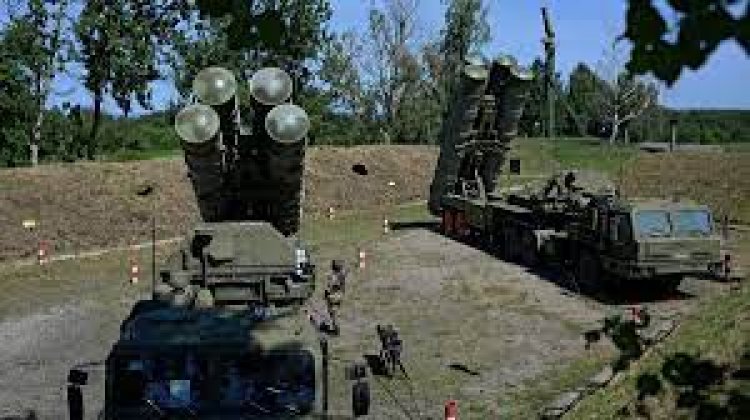Ukraine War: Need to Reduce Dependence on Military Imports
STORIES, ANALYSES, EXPERT VIEWS

The Ukraine war has posed a dilemma for New Delhi, which remains engaged with Russia and China in the BRICS format as well as in the Shanghai Cooperation Organisation (SCO), while also partnering with the US in the Quad and Malabar groupings. To add complexity, India simultaneously holds presidencies of the G20 and SCO. Astute statesmanship will be required, writes Arun Prakash (retired chief of naval staff) “if India is to take advantage from this ‘tightrope walk’ while maintaining ‘strategic autonomy’.”
More importantly, the “relegation of Moscow to a 'junior partner’ gives Beijing great leverage and fetters Russia’s capacity to pursue independent relations with other states, especially India. Given the rapid decline of Russia’s capability/reliability as a defence supplier and our parlous security environment, India’s decision-makers should worry. The recent Poonch ambush shows that despite multiple ongoing domestic crises, the Pakistan army-ISI combine remains undeterred and persists with cross-border terrorism. Of equal concern should be the stonewalling of Raksha Mantri Rajnath Singh’s demarche about the ‘violation of existing agreements’ by his Chinese counterpart, Li Shangfu.”
India needs to change policy stance
Thus, advises the former Admiral, “for New Delhi to stand firm against this dual-threat it needs to undertake a re-appraisal of its policies and accord priority to ‘power-balancing’ as well as ‘technology acquisition' on its diplomatic agenda.
The Quad and Malabar groupings, he states “are a manifestation of the convergence of US and Indian strategic interests. Although these forums appear to be serving a useful military-diplomatic purpose, their overall impact has been underwhelming……..It is time for India to motivate its Quad partners to evolve a meaningful charter and agenda and to invest the grouping with substance — and teeth.”
For example, the trilateral security pact, AUKUS, the US and Britain apart from sharing many advanced technologies with Australia would also assist it in acquiring a nuclear attack submarine (or SSN) force. The SSN-AUKUS, states Prakash “brings into stark relief the complete absence of any similar offer of training, military technology or hardware, by the US to India. This is despite warm bilateral ties, a ‘strategic partnership’, the ‘historic and path-breaking’ Indo-US civil nuclear deal and a host of defence-related agreements. Perhaps it was to address this stasis in Indo-US relations that an Initiative on Critical and Emerging Technologies (iCET) was announced in May 2022 by Joe Biden. It remains to be seen if iCET results in significant sales or transfer of technology to India or ends up as an addition to the ‘alphabet soup’ of Indo-US agreements.”
Inadequate performance of India’s military-industrial complex
Prakash makes another point. Despite being a nuclear-weapon state and space power, and the world’s fourth-largest military, “the lackadaisical performance of its military-industrial complex has rendered it abjectly import-dependent for weaponry. While ‘atmanirbharta' (self reliance) is a laudable quest, technology has long gestation periods and we should draw useful lessons from China. In a single-minded campaign since the 1960s, China has employed reverse engineering, coercion, and even blatant theft to acquire military technology from the USSR and the West.
"It is time for India to adopt a ‘whole of government’ approach so that trade, commerce, and diplomacy can be synergised, to leverage the acquisition of military technology that will make us truly ‘atmanirbhar’ in the long run.”















